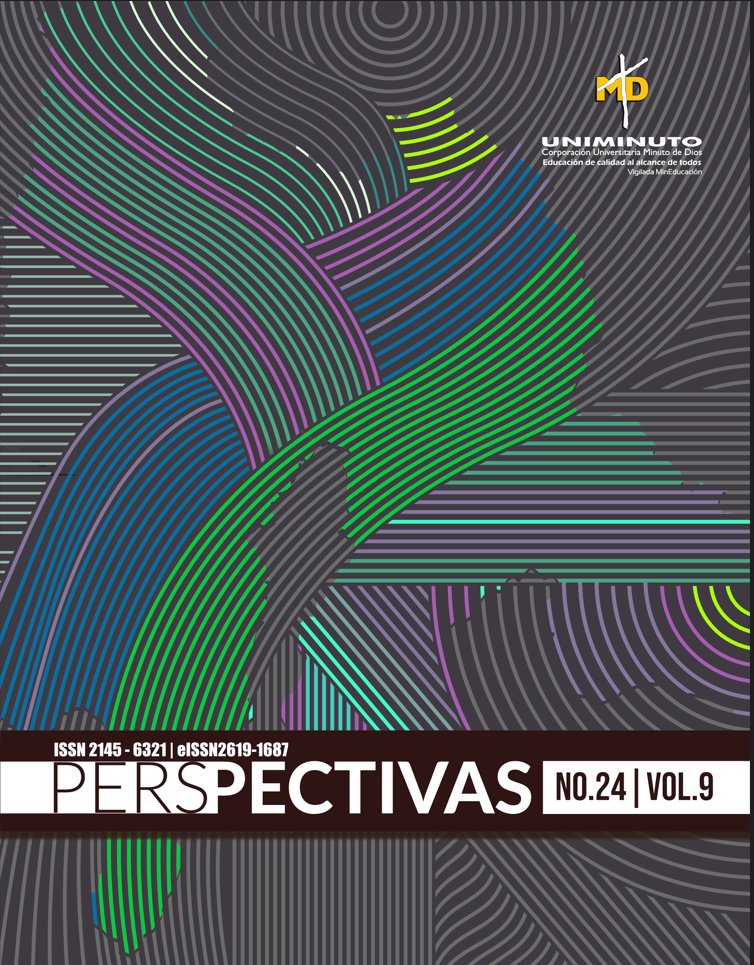Los factores socioafectivos y la vinculación familiar en la niñez: un estudio en Cundinamarca
Contenido principal del artículo
Resumen
En este estudio se logró identificar los factores socioafectivos que inciden en la construcción del self en la niñez y la funcionalidad familiar, en los municipios de Soacha y San Antonio de Tequendama en el departamento de Cundinamarca, Colombia, durante 2023, desde un enfoque psicodinámico. La metodología empleada fue de carácter cuantitativo, con un alcance descriptivo, donde se aplicó el instrumento test de funcionamiento familiar (FFSIL). La muestra estuvo conformada por 146 padres, madres y cuidadores, seleccionada por muestreo probabilístico-aleatorio simple, se tuvieron cuatro escenarios diferentes como la Institución Educativa Compartir, con una muestra de 39 personas; la comunidad del barrio Ciudad Verde, con 40 personas; el estadio municipal Luis Carlos Galán con el programa de Exploración Motora del IMRDS (Institución Municipal Para la Recreación y el Deporte de Soacha), con 20 personas del municipio de Soacha, Cundinamarca y la Institución Educativa Departamental Mariano Santamaría del municipio de San Antonio de Tequendama, con 47 personas. Los resultados permitieron identificar la funcionalidad familiar a través de la cohesión, armonía, comunicación, permeabilidad, afectividad, roles, adaptabilidad, etapas de desarrollo psicosocial, pautas de crianza y comunicación familiar en la niñez, demostrando un impacto en la dimensión afectiva.
Detalles del artículo
Número
Sección

Esta obra está bajo una licencia internacional Creative Commons Atribución 4.0.
Cómo citar
Referencias
Barber, J. P. y Solomonov, N. (2016). Psychodynamic theories. En J. C. Norcross, G. R. VandenBos, D. K. Freedheim y B. O. Olatunji (Eds.), APA handbook of clinical psychology: Theory and research (pp. 53–77). American Psychological Association. https://doi.org/10.1037/14773-003
Bustos Arcón, V. A. y Russo de Sánchez, A. R. (2018). Salud mental como efecto del desarrollo psicoafectivo en la infancia. Psicogente, 21(39), 183-202. https://doi.org/10.17081/psico.21.39.2830
Costa-Ball, C. y Cracco, C. (2021). Propiedades psicométricas de la escala de satisfacción familiar en familias uruguayas. Anales de Psicología, 37(1), 161-167. https://doi.org/10.6018/analesps.383381
Delgado Fierro, S. V. y Losada Rivas, M. P. (2022). Desarrollo socioafectivo: una mirada desde la comunicación familiar con niños y niñas en etapa media de la infancia que residen en la zona rural del Municipio de Algeciras, Huila. [Tesis de maestría de la Universidad de La Sabana). https://intellectum.unisabana.edu.co/bitstream/handle/10818/52561/Tesis%20Paula%20Losada%20y%20Viviana%20Delgado.pdf?sequence=1&isAllowed=y
Eiguer, A., Grinspon, E. A., Darchis, E., Tixier, E., Porto, M., Sefcick, R., Sequeira, J. P. y Cotralha, N. (2014). Los conceptos que inspiran el trabajo de los psicoanalistas de pareja y familia. Estudio preliminar del análisis cuantitativo en el contenido de una encuesta. Subjetividad y procesos cognitivos, 18(1), 71-103.
Hernández Sampieri, R. y Mendoza Torres, C. P. (2018). Metodología de la investigación: las rutas: cuantitativa y cualitativa y mixta. Mc Graw Hill- Educación.
Ortega, T., de la Cuesta Freijomil, D. y Días Retureta, C. (1999). Propuesta de un instrumento para la aplicación del proceso de atención de enfermería en familias disfuncionales. Revista Cubana de Enfermería, 15(3), 164-168. http://scielo.sld.cu/scielo.php?script=sci_arttext&pid=S0864-03191999000300005
Ruales Jurado, R. E., Lucero Revelo, S. E. y Gómez Rosero, Á. H. (2022). La autorregulación emocional desde una perspectiva educativa. Fedumar, Pedagogía y Educación, 9(1), 64-73. https://doi.org/10.31948/rev.fedumar9-1.art-4
Salinero, J. (2014). La elección del tipo de diseño de investigación. Nure Investigación. https://www.nureinvestigacion.es/OJS/index.php/nure/article/view/158/144
Wang, S., Yang, G., Jiao, Y., Liu, Y., Tian, Ch., Wu A. y Haijing Y. (2023). Tuning electronic structure of Ni3S2 with tungsten doping for high-performance electrooxidation of 5-hydroxymethylfurfural. Science China Chemistry, 66, 3636–3644 https://doi.org/10.1007/s11426-023-1818-8

